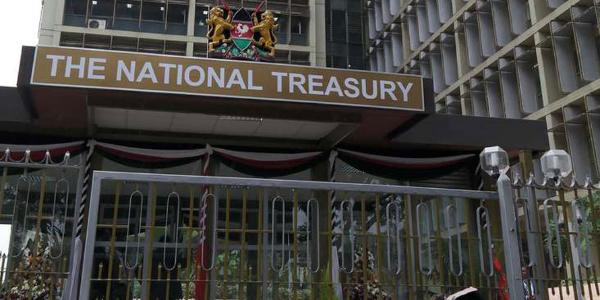Kenyan Treasury secretary Henry Rotich told the Financial Times on Friday that he will review the cap on bank lending rates that has resulted in a massive fall in loans to the private sector.
This is part of the contentious reforms demanded by the IMF to extend a frozen Sh153 billion ($1.5bn) emergency standby facility that expires next month.
An IMF team is in Nairobi to discuss how the programme could be renewed.
The Treasury has committed to the International Monetary Fund (IMF) that it will repeal or reform the 18-month-old law capping interest rates in what could set the stage for expensive loans.
Treasury secretary Henry Rotich told the Financial Times on Friday that he will review the cap on bank lending rates that has resulted in a massive fall in loans to the private sector.
This is part of the contentious reforms demanded by the IMF to extend a frozen Sh153 billion ($1.5bn) emergency standby facility that expires next month.
The facility, which is designed to alleviate a balance of payments crisis, had been suspended since last June.
Jan Mikkelsen, the IMF’s Kenya resident representative, said a cut on the budget deficits and review of the legal lending cap were “key” to extending the facility.
The Treasury has committed to the International Monetary Fund (IMF) that it will repeal or reform the 18-month-old law capping interest rates in what could set the stage for expensive loans.
An IMF team is in Nairobi to discuss how the programme could be renewed.
The government in September 2016 capped commercial lending rates at four percentage points above the central bank’s benchmark rate, which stands at 10 per cent, and put a minimum deposit interest rate of 70 per cent of the benchmark.
It argued that lenders had failed to lower costs of credit to consumers, despite enjoying some of the highest rates of return on equity in the continent.
But the Central Bank of Kenya said preliminary findings of a joint study with the Treasury on the impact of the rates capping on growth of credit had confirmed a negative impact.
Bankers say they’ve closed some branches, laid off staff and seen their loan book growth slow in response to the cap.
